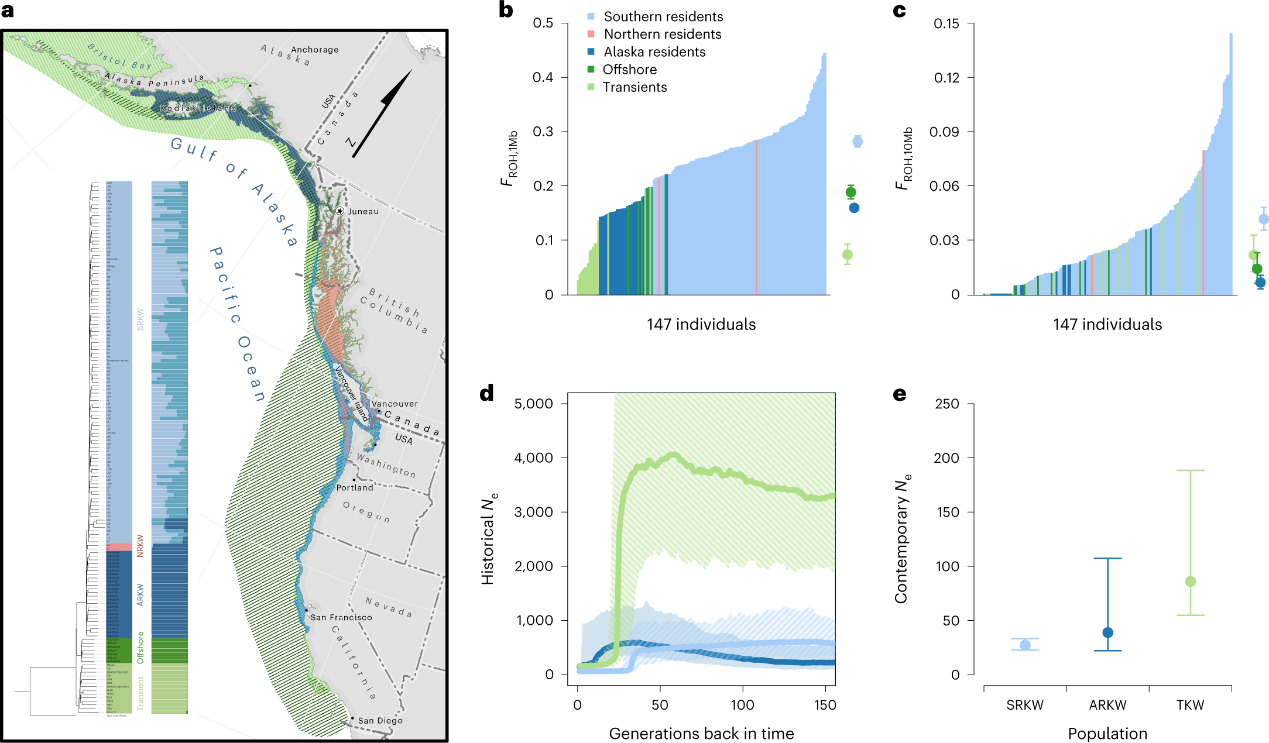Inbreeding depression explains killer whale population dynamics
The key to conserving biodiversity is to understand the factors that drive population growth. Although genetic factors have long been a theoretical focus in conservation biology, intrinsic genetic effects on population dynamics are rarely measured in the wild. In recent years, increasing attention has been paid to the idea that depleted populations can be further imperilled by the genetic consequences of small population size, including inbreeding depression (reduced survival or reproduction of the offspring from closely related parents) or the loss of genetic variation and adaptive potential.
This gap was addressed by directly investigating the impact of inbreeding on the population dynamics of North Pacific killer whales (Orcinus orca). Killer whales in the Eastern North Pacific comprise multiple sympatric ecotypes. Population size and trend, extrinsic threats and conservation status vary among populations, with the ‘Southern Resident’ killer whale population (SRKW) among the smallest and most threatened. The SRKW exhibit low survival and fecundity relative to other populations and are thought to face a number of extrinsic threats, including contaminants, anthropogenic noise, and disturbance and reduced prey abundance. Inbreeding might contribute to fitness variation in killer whales and may be a factor limiting the growth of the SRKW population. By developing a chromosome-level killer whale reference genome and sequenced the genomes of 100 SRKWs, inbreeding and recent demographic history of each population were first assessed. Then analysing the genomes of SRKWs, combined with detailed demographic data from the population, to estimate inbreeding depression for survival, fecundity, lifetime reproductive success and population growth. Finally, comparing genomic estimates of inbreeding and the abundance of putatively deleterious alleles and genotypes among populations. The results show that strong survival-mediated inbreeding depression is limiting population growth and recovery of the SRKW. In this study, survival model, fecundity model, estimation, and effect sizes were used to assess the inbreeding depression in the Southern Resident killer whales.
In conclusion, this study demonstrates that genetic factors such as inbreeding depression can also affect population dynamics. The results of the study help to fill this gap by providing direct evidence that deleterious genetic variation and inbreeding depression for survival substantially impact population dynamics in an endangered population.

Distribution, population structure, inbreeding and demographic history for five North Pacific killer whale populations.